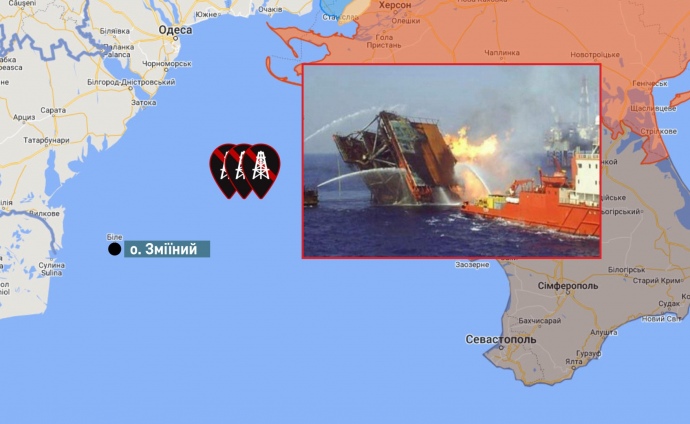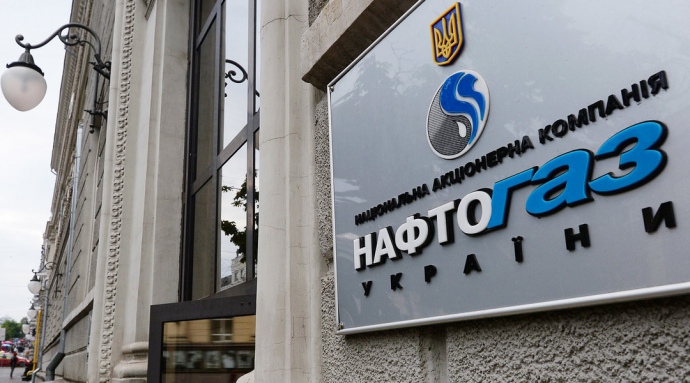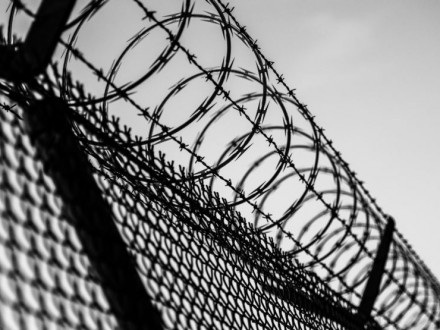The Arbitration Tribunal at the Permanent Court of Arbitration in The Hague has ordered that Russia pay Naftogaz Group $5bn for seizing the company's assets in occupied Crimea.
Naftogaz, NJSC made the announcement about the tribunal's ruling in a 13 April statement.
“The Naftogaz team has won a key victory on the energy front. Despite Russia’s attempts to obstruct justice, the Arbitration Tribunal ordered Russia to compensate Naftogaz for losses of $5 billion. This relates to the seizure of our assets in Crimea by Russia in 2014. Russia must now comply with this decision in accordance with its obligations under international law,” stated Naftogaz CEO Oleksii Chernyshov.
In addition, the victory came after The Hague court dismissed Russia’s cross-appeal claiming that Naftogaz was not entitled to any compensation for the expropriation of its assets. Moreover, the tribunal ruled that the funds should be equal to the assets’ fair market value before Russia seized them.
For the last nine years, Russia has been stealing Ukraine's natural reserves
After Russian troops entered the Crimean peninsula in 2014, occupation authorities unlawfully expropriated the property of numerous Ukrainian companies, including valuable energy assets of the Naftogaz Group, as per Ukrainska Pravda.
The most critical assets in Russia’s list of stolen Ukrainian property are two gas platforms, known as "Boiko's towers," which were purchased from the Norwegian company Ferncliff in 2011 while Yuriy Boiko served as Minister of Energy in President Viktor Yanukovych’s administration. Yanukovych was ousted as a result of the Euromaidan Revolution in 2014. At the time, Naftogaz appeared to be embroiled in a corruption scandal, with the company paying for the rigs at wildly inflated prices.
According to some reports, the platforms were destroyed by a missile strike launched by Ukraine in the summer of 2022. Because of the country’s temporary lack of access to Crimea, it is impossible to assess the current state of the energy facilities.

The Black Sea shelf seizure could be considered Naftogaz’s most significant defeat. Since the occupation, Russia has “nationalized” Ukraine’s 15 oil and gas and three hydrocarbon fields.
According to the state company experts, because of the invasion of Crimea, Ukraine has suspended the development of its energy fields, which contain 50 billion cubic meters (bcm) of gas, 3.5 megatons of oil, and 1 megaton of gas condensate.
Until today, the Russian occupiers have continued the illegal extraction of hydrocarbon reserves, causing Naftogaz substantial financial losses.
- the Hlyboke underground gas storage facility
- more than 1,200 km of main gas pipelines
- 43 gas distribution stations
- four floating drilling rigs (including the "Boiko" towers)
- administrative buildings
- financial assets
- other essential elements of industrial infrastructure.
After accounting for all of the damage caused by Russia’s annexation, Naftogaz estimated the losses at $10 billion.
It took six years of legal battles for Ukraine to defeat Russia in The Hague
In 2014, Naftogaz began litigation when Russian “authorities” in Crimea “nationalized” the company's assets. Two years later, in 2016, the company filed a lawsuit against Russia alongside six other Naftogaz Group subsidiaries: "Chornomornaftogaz," "Ukrtransgaz," "Ukrhazvydobuvannia," "Ukrtransnafta," "Haz Ukrainy," and "Likvo."
In September 2017, the company initiated legal proceedings at the Arbitration Tribunal at the Permanent Court of Arbitration. In 2019, the Court finally confirmed that Russia was responsible for violating the intergovernmental agreement on the protection of investments, which included the article restricting expropriation.
Naftogaz's next step was to provide evidence that Russian aggression had cost the company $10 billion in assets. To achieve this, they submitted a damage assessment to The Hague, with input from both Ukrainian and international experts.
According to international arbitration law expert Dmytro Duma, Naftogaz was content with the arbitration award, despite the court's ruling to reduce the compensation payment to $5 billion. Andriy Kobolyev, the CEO of Naftogaz, stated that "$5 billion is a reasonable valuation of the assets in Crimea."
According to Svitlana Nyzhnykova, the CEO of Chornomornaftogaz, while the case was being initiated in The Hague, Russia extracted 10.4 bcm of gas from Ukrainian-owned fields during the three years of Russian annexation, Forbes reported.
In July 2022, the Hague Court of Appeal confirmed the Arbitration Tribunal’s jurisdiction in the Naftogaz case, allowing the proceedings to continue.

Will Russia actually pay?
Russia must comply with the PCA’s order in accordance with its international law obligations. Although Ukraine has won the case, obtaining compensation from the aggressor country during the full-scale invasion may prove difficult due to the impending and long-awaited counteroffensive, potentially including the de-occupation of the annexed Crimea by Ukrainian military forces.
In its official statements, Russia has announced that it requires time to analyze the decision thoroughly.
"Our experts who are responsible for protecting Russia's rights will conduct an analysis and make decisions on our further actions," said the Kremlin spokesman, Dmitry Peskov.
Nevertheless, such arbitration awards are enforceable through the mechanism of compulsory execution. And it is most likely, Naftogaz will have to take this path to receive the compensation.
“In the case of Russia’s refusal to comply with the court’s decision voluntarily, Naftogaz plans to initiate the process of recognizing and implementing the decisions through a compulsory execution mechanism in the countries where Russia stores its assets according to the 1958 New York Convention, which was ratified by Ukraine,” the press service of the company has said.
According to Oleksiy Chernyshov, the CEO of Naftogaz, the company does not expect Russia to comply with the arbitration decision voluntarily. Therefore it is working with Covington & Burling LLP, a leading international law firm, to explore all possible options for recognition and enforcement of the award. The process will entail searching for assets belonging to Russia or its state-owned companies in other countries, their seizure, and sale through auctions to settle the debt soon.
"Naftogaz will be able to demand the seizure of foreign assets belonging to the Russian Federation as a state, except for those that are protected by diplomatic or sovereign immunity. For example, it is not possible to seize the premises of embassies. But frozen assets of the Russian Central Bank in different countries can be seized," Taras Dumych, a partner at Wolf Theiss international law firm, told Apostrophe.
However, he added, this will require "efforts and legal actions."
"Therefore, the task of Naftogaz and its lawyers now is to identify such assets quickly, prove that they belong to the Russian state, try to freeze them, and demand their confiscation for the execution of the arbitration tribunal's decision," Taras Dumych said.
Nevertheless, as other cases involving Ukraine have shown, securing restitution can be challenging and requires a long-term approach. In particular, in 2018, the country’s "Oschadbank" filed a lawsuit at an Arbitration Tribunal in Paris for a $1.3 billion damage claim over assets seized by Russia during the annexation of Crimea. Despite the court’s ruling favoring Ukraine’s bank, the compensation process is still in progress.
Related:
- Case against Ukraine’s ex-Naftogaz chief: political persecution or effective anti-corruption work?
- Hague Court demands Russia pay USD 5B to Naftogaz for seizing Crimea assets, Naftogaz says
- ICC arrest warrant for Putin: what’s next, and do we still need a Tribunal? Human rights defender answers
- It is time to accuse Putin of rape – human rights lawyer
- How the EU should ramp up energy sanctions to end Russia’s war ASAP





